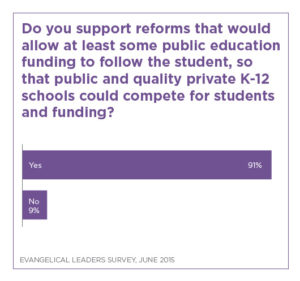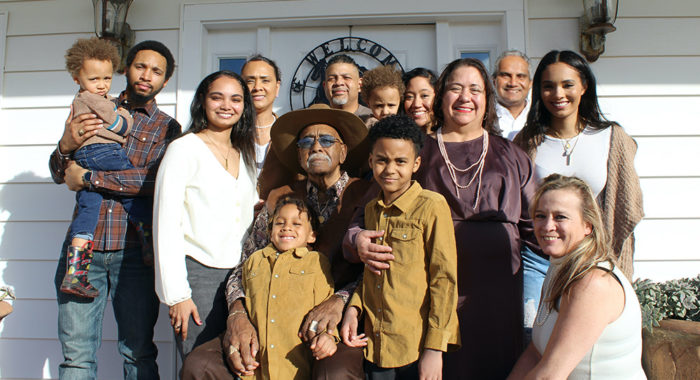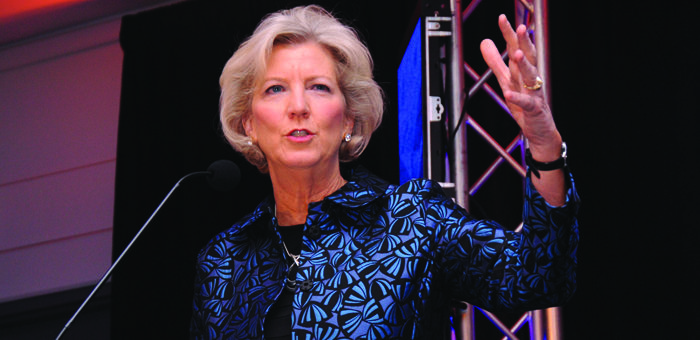

Carmen Fowler LaBerge, president of Presbyterian Lay Committee, said, “When it comes to educational choices, the goal of a free society should include the freedom of parents to choose from among a range of options that include government run, private, charter and home schools.”
American evangelical leaders are also attracted to funding reforms as a way of spurring innovation and improvement in the quality of public schools. Greg Johnson, president of Standing Together, in Lehi, Utah, said, “Competition will produce better education for kids across America.”
Don Sweeting, president of Reformed Theological Seminary in Orlando, said, “I support these reforms not only to help private school students and schools, but also because they will bring competition to public schools, pushing them to increase their quality. American students are falling behind internationally. It’s time to stop doing the same old thing.”
Carl Nelson, president of Transform Minnesota, noted the growing consensus on the importance of quality preschool programs for all children, and recommended promoting the use of a student-based funding system to create a level playing field for public and private preschools. “Strategically, an expansion of funding might be the best opportunity to gain acceptance for vouchers to be used in quality private preschool programs,” he said.
Several evangelical leaders noted that their support was conditional on the whether strings would be attached to the funding. For example, would religious private schools have to conform its curriculum to religiously neutral content? Would government requirements placed on private schools be overbearing?
One of the evangelical leaders who does not think education funding should follow students noted that the very goal of private schools is “to have complete autonomy and be void of any government oversight or control.”
Anderson said, “Evangelicals want all schools — public and private — to have freedom to innovate, while being held accountable for results. At the same time they resist intrusive government controls over private schools.”
The Evangelical Leaders Survey is a monthly poll of the Board of Directors of the National Association of Evangelicals. They include the CEOs of denominations and representatives of a broad array of evangelical organizations including missions, universities, publishers and churches.



 View All Surveys
View All Surveys 









